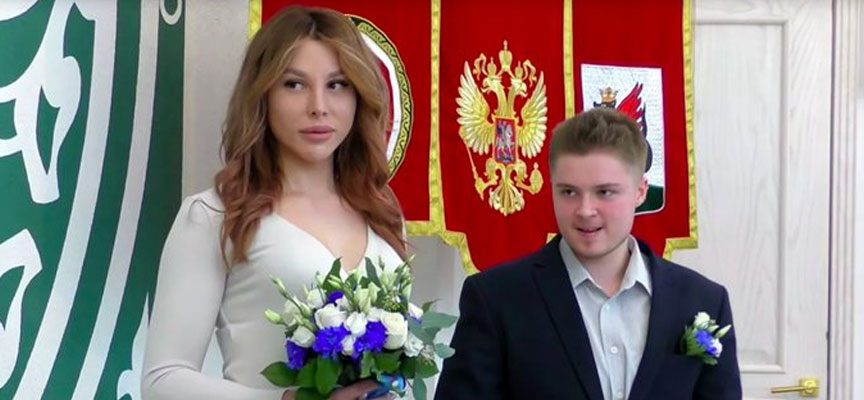Afanasy Shaur, a member of the Russian Baltic Fleet, organized an extraordinary gay wedding in Petrograd in January 1921.
Guests included 95 army soldiers, including retired soldiers and a woman in a man’s costume.
There have been no such activities in the city yet.
Shaur went out of his way to organize an extraordinary party because he did not think that many guests would come if he had an ordinary party.
On the other hand, bread and salt, one of Russia’s traditional wedding ceremonies, was not lacking in things like family permits and concerts.
At that time, the gay community in Russia experienced a short period of tolerance.
After the October Revolution, the Bolsheviks rewrote the country’s laws. In the two criminal laws of 1922 and 1926, homosexual relations were not defined as crimes.
But the marriage in Petrograd was not seen that way.
Afanasy Shaur was a member of the secret police and all of the guests were arrested during the wedding.
It turned out that Shaur had organized all the events to make his bosses happy. Shaur argued that these retired soldiers were counterrevolutionaries who wanted to overthrow the young Red Army from within.
But Shaur’s accusations did not hold up. The case was closed and nothing happened to those accused of “counterrevolutionism”.
Homosexual men had founded clandestine communities in Russia long before the revolution, and they knew each other by their “secret fashion options”.
San In St. Petersburg, there were red bows or scarves in which they sewed the back pockets of their pants.
Others preferred to apply blush and mascara on their faces.
After the revolution, more and more people started to imitate this style with the popular “Stummfilmstar” makeup.
While the revolution and the conflicts that followed were difficult for Russia, homosexuals in Europe could not wear fancy clothes and luxury accessories like homosexuals.
The persecution, although legal, continues
The Bolsheviks were indirectly influenced by the German scientist Margnus Hirschfeld, who founded the Institute of Sexology in Berlin. Hirschfeld argued that homosexuality is not a disease, but a natural expression of human sexuality.
Although homosexuality was not a crime in the penal code of the 1920s, the gay community continues to be prosecuted. Gay men were often beaten, threatened or fired.
Others said they lived by writing sincere letters to psychiatrist Vladimir Bekhterev, whom they saw as their last hope. Some of the homosexuals who saved their savings asked for help to get rid of the depression, and others said, “Treat our disease.”
These letters and other documents show how courageous the homosexuals of that time were, and some of them looked like real women when they wore women’s dresses and corsets and stretched their hair.
“Aristocrats” and “people”
Interestingly, gay men continued to divide according to their social strata, even though the revolution eliminated class division. The two gay communities have rarely interacted with each other.
The first of these groups were the “aristocrats”, including nobles, civil servants, high-ranking soldiers and creative intellectuals.
The other community was made up of “people”. Even their names were given by aristocrats. Among them were people like soldiers, sailors and employees who had not been invited to the impressive halls of Saint Petersburg by aristocrats before the revolution.
In the 1920s, the “transvestite theater”, in which everyone in Germany wore clothes of the opposite sex, became popular among Soviet gays. She was particularly fascinated by the star of the Berlin nightclub “El Dorado”, Hansi Sturm.
“Aristocrats” rarely invited handsome “men” into their souls. But men in female clothing were exempt from class divisions.
Their closets were full of beautiful costumes sewn by professional tailors. They hired some of the famous tailors from Petrograd, Leifert.
Before the revolution, Leifert made costumes for the dancers of the Mariinsky theater and was also a supplier to the royal family.
Unhappy end
There was no significant marriage or detention in the 1920s after Afanasy Shaur caught the “counter-revolutionaries” with an extravagant gay marriage.
Although homosexuality is tolerated, the gay community began to lose their freedoms in the 1930s.
BBC Turkish
bbc.com/turkce/haberler-dunya-41837776


